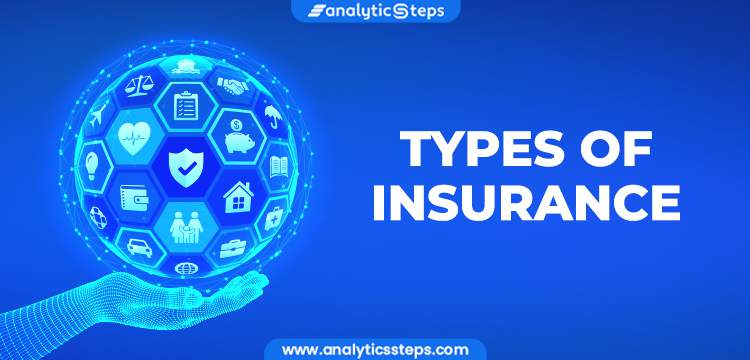Small businesses face considerable challenges when it comes to providing competitive health insurance benefits. Rising costs and administrative complexities often leave business owners feeling overwhelmed. A recent survey revealed that 60% of small business owners consider health insurance their top concern. Partnering with a Professional Employer Organization (PEO) can offer a viable solution, but selecting the best PEO for health insurance requires careful thought. Not all PEOs are the same, and some may be more suitable for your unique needs than others.
Toc
- 1. Understanding PEOs and Their Role in Health Insurance
- 2. Choosing the Right PEO: Key Factors to Consider
- 3. Related articles 01:
- 4. Top PEO Companies and How to Evaluate Them
- 5. Avoiding Pitfalls: Recognizing the Worst PEO Companies
- 6. Related articles 02:
- 7. Current Trends Impacting Small Business Health Insurance
- 8. Actionable Steps for Choosing the Best PEO
- 9. Conclusion
In this comprehensive guide, we will delve into how to identify the best PEO for health insurance. We will cover essential factors to consider, provide a list of top PEO companies, and highlight common pitfalls to avoid.
Understanding PEOs and Their Role in Health Insurance

Professional Employer Organizations (PEOs) serve as co-employers, managing various HR functions for small businesses. This partnership can significantly reduce the administrative burden on business owners while providing access to competitive health insurance plans. Let’s explore the primary functions and benefits of PEOs in the health insurance landscape:
What is a PEO?
A PEO is a service provider that offers a wide range of HR solutions, including payroll processing, employee benefits management, and compliance with employment laws. By pooling employees from multiple businesses, PEOs can negotiate better health insurance rates and provide a broader array of benefits than most small businesses could secure independently.
Co-Employment Explained
Co-employment refers to the legal relationship between the PEO and the small business. In this arrangement, the PEO handles HR-related tasks while the small business retains control over day-to-day operations. While this can create some confusion regarding liability and responsibilities, it is designed to streamline HR processes and provide access to superior resources.
Cost-Saving Benefits
One of the most significant advantages of partnering with a PEO is the potential for cost savings derived from group purchasing power. PEOs can negotiate better rates with insurance carriers, allowing small businesses to offer competitive health insurance packages without absorbing the full cost themselves. However, it’s essential to recognize that while PEOs can offer cost savings, it’s crucial to compare the total cost of PEO services—including fees and insurance premiums—to the cost of managing benefits in-house. Some businesses might find that handling benefits internally is more economical, especially if they have a small, stable workforce and dedicated HR staff.
Simplifying Compliance
Navigating the complex landscape of employment laws can be daunting for small business owners. PEOs help ensure compliance with federal and state regulations, reducing the risk of costly penalties. Nevertheless, while PEOs handle much of the compliance burden, the small business remains ultimately responsible for ensuring compliance. A lack of due diligence in selecting and overseeing the PEO could still lead to legal issues. By outsourcing HR tasks to a PEO, businesses can focus on their core operations while the PEO manages compliance-related issues.
Addressing Common Concerns
Many small business owners harbor misconceptions about PEOs, especially regarding control and liability. It’s crucial to understand that while the PEO manages HR functions, the business retains control over its employees. This relationship is designed to enhance a business’s ability to attract and retain talent through improved benefits and support.
Choosing the Right PEO: Key Factors to Consider
Selecting the best PEO for health insurance involves a thorough evaluation of several factors. Here are some critical considerations to guide your decision-making process:
Cost and Pricing Models
The cost of PEO services can vary widely depending on the pricing model used. Understanding these models is crucial for budgeting.
- Percentage of Payroll: This model charges a percentage based on your total payroll. While it may appear economical for businesses with lower payrolls, it can lead to unpredictable expenses as your workforce grows.
- Per-Employee Fee: This straightforward model allows for predictable monthly costs, making it easier for small businesses to budget. Each employee incurs a flat fee, regardless of payroll fluctuations. However, additional services may be priced separately, leading to unexpected expenses.
- Flat-Rate Administrative Fee: Some PEOs offer comprehensive services for a flat monthly fee. This approach can provide cost predictability, particularly for small businesses looking to manage expenses effectively. Nonetheless, it may lack flexibility for businesses with fluctuating needs.
When comparing pricing models, consider your business’s size, growth projections, and financial goals to determine which model aligns best with your needs.
1. https://hanoipetcare.com.vn/mmoga-best-life-insurance-without-medical-exam-for-seniors/
2. https://hanoipetcare.com.vn/mmoga-best-commercial-truck-insurance-a-guide-for-new-drivers/
3. https://hanoipetcare.com.vn/mmoga-best-pet-insurance-in-texas-a-comprehensive-guide-for-pet-owners/
Health Insurance Plan Options and Coverage
The variety of health insurance plans offered by PEOs is another critical consideration. Understanding the types of plans available is essential for selecting the right coverage for your employees.
- Types of Plans: PEOs may offer various health insurance plans, including Health Maintenance Organizations (HMOs), Preferred Provider Organizations (PPOs), and high-deductible health plans with Health Savings Accounts (HSAs). Each plan type has its advantages and limitations, so it’s vital to determine which will best serve your workforce.
- Coverage Comparison: Evaluate plans based on premiums, deductibles, and out-of-pocket costs. Ensure you assess the geographical reach of the plans to confirm that employees in different locations can access the necessary care.
- Customization Options: Some PEOs allow businesses to tailor their health insurance plans to meet the specific needs of their workforce, enhancing employee satisfaction and retention.
The Impact of the Affordable Care Act (ACA)
The Affordable Care Act (ACA) has significantly influenced the landscape of small business health insurance and PEOs. Under the ACA’s employer mandate, businesses with 50 or more full-time equivalent employees must provide health insurance that meets minimum essential coverage requirements. Partnering with a PEO can help small businesses navigate these compliance complexities, ensuring they meet their obligations under the law.
Comprehensive Benefits Beyond Health Insurance
A robust benefits package is crucial for attracting and retaining talent. In addition to health insurance, PEOs often provide other benefits such as dental and vision insurance, life insurance, and retirement savings plans.
- Employee Perks: Additional perks, such as wellness programs or employee assistance programs, can significantly enhance employee satisfaction and loyalty.
- Impact on Retention: Offering comprehensive benefits can lead to higher employee retention rates, ultimately benefiting your business in the long run.
Technology and HR Support
In today’s digital age, technology plays a crucial role in HR management. The best PEOs utilize modern technology to streamline processes such as online enrollment, benefits administration, and employee self-service portals.
- User-Friendly Platforms: Ensure that the PEO you choose offers a user-friendly platform that allows employees to manage their benefits effortlessly. A well-designed platform can enhance employee engagement and reduce administrative burdens.
- Dedicated HR Support: Access to HR experts can help businesses navigate complex employment laws and regulations, ensuring compliance and reducing risk.
Compliance and Risk Management
Compliance with employment laws is critical for small businesses. The right PEO can help mitigate risks associated with labor laws, tax regulations, and employee benefits compliance.
- Legal Support: A reputable PEO should offer legal resources and support to help businesses stay compliant with all applicable laws.
- Risk Mitigation: By outsourcing HR tasks to a PEO, businesses can reduce their exposure to compliance-related risks, safeguarding their operations.
Top PEO Companies and How to Evaluate Them
When searching for the best PEO for health insurance, consider the following criteria to guide your selection:
Criteria for Selection
- Reputation: Look for PEOs with a strong reputation in the industry. Online reviews and testimonials can provide valuable insights into the experiences of other businesses.
- Financial Stability: Ensure that the PEO is financially stable and has a proven track record. A PEO’s financial health can impact its ability to provide reliable services.
- Client Reviews: Research client reviews to understand the strengths and weaknesses of each PEO. Look for feedback on customer service, responsiveness, and overall satisfaction.
- Breadth of Services: Evaluate the range of services offered by each PEO. The best PEO companies provide comprehensive HR solutions that extend beyond health insurance.
- Technology Offerings: Assess the technology platforms utilized by the PEO. User-friendly technology can enhance the employee experience and streamline administrative tasks.
- Health Insurance Options: Review the health insurance plans available through the PEO. Ensure they offer various plans to meet the diverse needs of your workforce.
Profiles of Leading PEOs
Here are some of the top PEOs known for their health insurance offerings:
- Rippling: Renowned for its innovative technology and customizable solutions, Rippling excels in providing comprehensive HR services and health insurance options. Their ability to generate data-driven reports allows businesses to make informed decisions regarding employee benefits.
- Justworks: Ideal for small businesses without an in-house HR department, Justworks offers a user-friendly platform and competitive health insurance plans, making it easy for business owners to manage employee benefits.
- Insperity: Catering to larger small businesses, Insperity provides tailored solutions, including access to enterprise-grade benefits. Their expertise in compliance and risk management makes them a reliable partner for growing companies.
- ADP TotalSource: As a well-known name in HR services, ADP offers a wide range of solutions for businesses of all sizes. Their robust technology platform and comprehensive employee benefits packages are key selling points.
- Paychex: With a strong focus on small businesses, Paychex provides tailored HR solutions and access to various employee benefits. Their flexibility in service offerings is ideal for businesses looking to grow.
Red Flags to Watch Out For
While many PEOs offer excellent services, it’s essential to recognize potential pitfalls. Here are some red flags to consider when selecting a PEO:
- Lack of Transparency: PEOs that are unwilling to provide detailed information about their pricing models or service offerings should be approached with caution.
- Negative Client Reviews: Consistently poor reviews or complaints about service delivery can indicate underlying issues within the organization.
- Limited Experience: Newer PEOs may lack the stability and experience needed to manage your HR needs effectively.
- Failure to Provide References: A trustworthy PEO should be able to provide references from current clients who can speak to their experiences.
- Compliance Issues: Be wary of PEOs that do not prioritize compliance with federal and state laws, as this could expose your business to unnecessary risks.
Avoiding Pitfalls: Recognizing the Worst PEO Companies
Choosing the wrong PEO can lead to significant challenges for your business. Here’s how to identify potential issues before making a commitment:
Lack of Transparency
A reputable PEO should be transparent about its pricing, services, and contracts. If a PEO is evasive or reluctant to share detailed information, it may signal deeper issues. Always ask for a clear breakdown of costs and services included in the contract.
Negative Online Reviews and Reputation
Utilize online resources, such as forums or review sites, to research PEOs. Websites like Reddit often feature discussions about the best PEO for health insurance and can provide insights into the experiences of other business owners. Pay attention to consistent complaints regarding service quality or responsiveness.
Limited Experience and Track Record
Choose a PEO with a proven history of success. Newer PEOs may lack the experience needed to handle your HR needs effectively. Established PEOs are more likely to have robust systems in place to support your business.
Insufficient Client References
A trustworthy PEO should readily provide references from current clients. Reach out to these references to gain insights into their experiences with the PEO and the level of service provided.
Compliance Issues and Legal Risks
Ensure the PEO prioritizes compliance with all relevant laws and regulations. A PEO that neglects compliance can expose your business to legal risks and penalties.
1. https://hanoipetcare.com.vn/mmoga-best-life-insurance-without-medical-exam-for-seniors/
2. https://hanoipetcare.com.vn/mmoga-best-commercial-truck-insurance-a-guide-for-new-drivers/
4. https://hanoipetcare.com.vn/mmoga-best-pet-insurance-in-texas-a-comprehensive-guide-for-pet-owners/
Current Trends Impacting Small Business Health Insurance
Rising Healthcare Costs and Inflation
The rising costs of healthcare and inflation are significant concerns for small businesses offering health insurance. According to the Kaiser Family Foundation, the average premium for employer-sponsored family health coverage increased by 22% from 2016 to 2021, with employers contributing an average of $5,969 for single coverage and $22,221 for family coverage. These escalating costs can strain small business budgets, making it even more critical to choose the right PEO to help manage expenses effectively.
Telehealth Integration
Telehealth has rapidly gained traction in recent years, particularly following the COVID-19 pandemic. Many health insurance plans offered through PEOs now include telehealth services, which improve access to care, reduce costs, and enhance employee satisfaction. By offering telehealth options, PEOs can help businesses provide a more comprehensive benefits package that meets the evolving needs of their workforce.
Actionable Steps for Choosing the Best PEO
Selecting the right PEO for health insurance involves several key steps. Follow this guide to ensure a smooth decision-making process:
Define Your Needs and Budget
Assess your company’s specific HR needs and establish a budget for PEO services. Consider the size of your workforce, the types of benefits you wish to offer, and your financial constraints.
Research and Compare Providers
Look for reputable PEOs that align with your requirements. Utilize online resources, request information from multiple PEOs, and read reviews to narrow down your options.
Request Proposals and Compare Offers
Reach out to shortlisted PEOs and request detailed proposals outlining their services, pricing, and coverage options. Compare these proposals to identify the best fit for your business.
Conduct Due Diligence
Investigate the PEO’s financial stability, certifications, and client history to ensure they are a reliable partner. Look for certifications such as Certified Professional Employer Organization (CPEO) to ensure compliance with tax laws.
Negotiate Contract Terms
Discuss contract details, including service levels, pricing, and cancellation policies, to ensure mutual understanding. Don’t hesitate to negotiate terms that work best for your business.
Implement the PEO Solution
Once a PEO is selected, work closely with them to implement the necessary systems and processes to facilitate a seamless transition. Ensure your employees are informed and engaged in the process.
Conclusion
Choosing the best PEO for health insurance is a vital decision for small business owners looking to enhance their employee benefits and streamline HR processes. By considering factors such as cost, plan options, additional benefits, and compliance support, businesses can make informed choices that positively impact their operations and employee satisfaction. As the landscape of employee benefits continues to evolve, partnering with a reputable PEO can provide the competitive edge needed to thrive in today’s market.
By following this guide, you’ll be well-equipped to navigate the complexities of selecting the best PEO for health insurance, ensuring you find the right partner to help manage your employee benefits effectively. Start your search today and invest in your business’s future with the right PEO.










